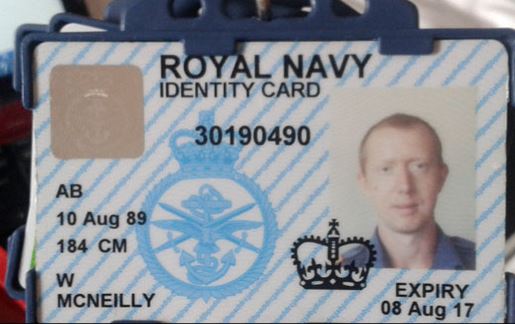Is Latest Trident ‘Nuclear Whistleblower’ Real, or Part of a Bigger Ruse?

What is the real story? Is it really about how safe Britain’s ‘nuclear deterrent’ is, or is there more to this narrative?
Previously, a 25-year-old British weapons engineer serving on board the HMS Victorious had leaked information to the public about multiple security lapses and technical faults in Britain’s Trident nuclear missile submarine carrier fleet, stationed at Faslane on the Clyde, Scotland.
According to an 18 page report published on WikiLeaks entitled The Nuclear Secrets, whistleblower William McNeilly described how potential attackers had “the perfect opportunity to send nuclear warheads crashing down on the UK.”
“It’s just a matter of time before we’re infiltrated by a psychopath or a terrorist,” he said. “There were some people that I served with on that patrol who showed clear psychopathic tendencies.”
Is this a genuine case of a whistleblower revealing what he knows, or is there more to this story than meets the eye?
As if by magic, the Wikileaks report was released only 3 days before the General Elections. The timing of this “whistleblower” controversy was uncanny and could be viewed as suspect. Consider the timing of this scandal. Trident featured as one of the main talking points in the run-up to the UK General Election. The Guardian explains:
“Labour and the Conservatives have publicly recommitted themselves to the renewal of Trident, pledging that it is a red line, set in concrete and, as David Cameron told the Commons in March this year, “non-negotiable”.
So that’s that then? Renewal of Britain’s nuclear deterrent a done deal? Only until after the votes have been counted. Trident’s future is still uncertain.”
At the center of this seemingly political struggle is the Scottish National Party (SNP). The campaign to ‘Get Trident nukes out of Scotland’ was one of the SNP’s central planks in their successful general election campaign which saw them sweep into power with 56 of the 59 available parliamentary seats. Writer James Kelly from IB Times explains the political nature of Trident in Scotland:
“Most SNP members want Trident off the Clyde every bit as passionately as they want independence. In fact, many of them support independence partly because it would rid the country of nuclear weapons.”
If it turns out that the objective can be realised within the confines of the UK, the reaction will be one of stunned delight and relief, not of consternation or a sense that a “tactic” for independence has somehow been thwarted.”
This latest installment of Snowden Lite is not just about ‘renewing Trident’. Putting the political gamesmanship and talk of ‘safety fears’ aside, the main object of maintaining a geopolitically useless, multi-billion pound ‘nuclear deterrent’ like Trident, was, is, and always will be: money. So for wealthy defense contractors, the main question would be, is there more money to be made by keeping Trident in Clyde, Scotland, or by moving its home by building a new state-of-the-art facility in England? In this way, the SNP would be booking-in some tremendous future profits of major defense contractors.
Could this latest ‘whistleblower scandal’ also have something to do with the allocation of funding and powerful privatized contracted which the British government has awarded select corporations to take over its nuclear weapons facilities?
As it turns out, back in 2012 the UK Ministry of Defence signed a 15-year contract with AWE, a consortium which already operates the Atomic Weapons Establishment at Aldermaston in Berkshire, where nuclear warheads are designed and maintained. The Guardian adds here:
“Additional contracts have been signed with Babcock and Lockheed Martin, part of a new consortium to be known as the ABL Alliance.
“In a reference to Aldermaston, it describes the new agreement as “a natural extension of [the companies’] current role in supporting the nuclear warhead carried by our Trident missiles. The AWE at Aldermaston is run by a consortium of Jacobs Engineering Group, Lockheed Martin UK and Serco, which have a 25-year contract to operate it until March 2025.”
Forensic investigative website Abel Danger has also linked private companies like Serco to a number of disturbing security risk situations, and it’s also worth considering that certain elements within the UK military establishment might want to wrestle control of Britain’s nuclear weapons systems away from private firms like Serco, and back into public hands.
It will be interesting to see where this story goes in the end.
Either way, considering the potential hundreds of billions at stake, this latest whistleblowing episode should be viewed with extreme caution…
Trident whistleblower to ‘turn himself in’ amid concerns over UK leaker’s fate
Treatment of whistleblowers by the UK government has been questioned after recent revelations by a British weapons engineer.
 The whistleblower went absent after going public with his report on lack of nuclear safety, but says he will surrender on Monday.
The whistleblower went absent after going public with his report on lack of nuclear safety, but says he will surrender on Monday.
William McNeilly, a former Navy officer, went on the run after co-operating with WikiLeaks to post a detailed 18-page report exposing alleged security lapses in the UK’s trident nuclear program. With both the Royal Navy and the police trying to track him down, the whistleblower said he would be handing himself into the police on Monday.
“There’s nothing I can do from prison; whatever happens now is up to you and the government,”the man wrote on Facebook under the name William Lewis. Adding that he has been moving between countries, changing his location “almost every day,” the whistleblower said he now“lacks the resources to remain undetected.”
Both experts and the public are now worried about the fate of the man whose bomb-shell report has not only given rise to concerns over the country’s security, but also questioned the authorities’ attitude towards public service whistleblowers in the UK.
“[If he does hand himself in] I have no doubt he will be questioned by the Ministry of Defense and disciplinary proceedings will be taken,” Rob Edwards, environmental journalist for the Sunday Herald told RT, adding that a petition has been launched in the UK calling for McNeilly’s pardon.


